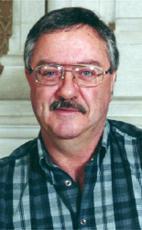Mr. Speaker, I am pleased to rise in the House today to participate in this debate for several reasons. I will start by pointing out how recommendations were made regarding the readjustment of electoral boundaries. The act is rather obsolete as it goes back to 1964. It is obvious that conditions have changed in 30 years. But what irritated me the most in all this is how the Ontario electoral commission proceeded to propose new boundaries.
This commission proposed that each riding should have at least 80,000 residents without taking into account regional affinities or distances to be covered so that every member can serve his constituents properly. I could give you a few examples of regional affinities.
First of all, my immediate region, that is the eastern part of the riding, was divided in two. A region that, since its foundation, has always shared the same economy, the same culture, the same social programs. It is more than a habit, it has become a tradition for this region to stay together. But it has been divided in two. The western part of the region was twinned with Algoma, which extends as far south as Lake Ontario. The name James Bay was added to Algoma, as the riding would now be shaped like a snake going around the region of Timmins to go east and then north to the western shore of James Bay. It makes absolutely no sense.
The second part was twinned with the city of Timmins, which would become Timmins-Cochrane. After consulting with people and with business, municipal and other leaders, it became obvious that it would be totally inappropriate to twin a small, rural part of a riding with a large city for the simple reason that the constituents, the voters of the large city would prevail over those of the small, rural region because of their numbers. And God knows that numbers in this country speak loud and clear. So much for the eastern part of my riding.
In the western part of my riding, the situation is somewhat similar. The western part of my riding was twinned with the existing riding of Thunder Bay-Nipigon. Again, municipal leaders and chamber of commerce directors told me they wanted to stay rural so that their identity would not be diluted, would not be lost within the big city of Thunder Bay that boasts some 100,000 residents.
What I am telling you, Mr. Speaker, is that the electoral commission's proposal was, in my opinion, outright provocation. A provocation that ignored regional affinities and distances to be covered in the vast region of northern Ontario. It is an immense region! There is a limit to taxing the energy of a member. I know what I am talking about because my riding is the fifth largest in Canada and, naturally, the largest in Ontario.
This bill was born as a result of the representations made by all parties in this House.
The proposed legislation will be used to correct the glaring errors and outdated provisions and will give birth, if you want, to a new act which will define the terms of reference of electoral commissions throughout Canada.
I personally look forward to this new legislation, not really because my riding was going to disappear, but because two ridings in northern Ontario were supposed to disappear. Of course, once again, southern Ontario stands to inherit, or shall I say gain these ridings. With the four ridings already proposed by
the commission, that would have meant six more ridings for southern Ontario.
Again, Mr. Speaker, I am telling you that we would have fought like crazy to at least keep the 12 ridings we currently have in northern Ontario, and I would like to make a digression, if I may. Native people are slowly but surely heading towards self-government. And 13,000 Native people live in my riding and 30,000 more live in the neighbouring riding of Kenora-Rainy River, represented here by my colleague, Robert Nault. I have always believed, and my colleague will agree, that it is about time we create a new riding which would be 98 per cent native and where the main goal would be to elect an Indian or a native member to represent these constituents in the House of Commons.
If you link all of this to the fact that we were about to lose two ridings, you will understand that it was out of the question. If we were to think positive, we would in fact consider adding a thirteenth riding.
One final word, Mr. Speaker. It is obvious that our party will vote overwhelmingly in favour of Bill C-18 and we hope, as I mentioned earlier, that the next bill which will define the terms of reference of the commissions will be a little more reasonable and sensible than the current legislation.

